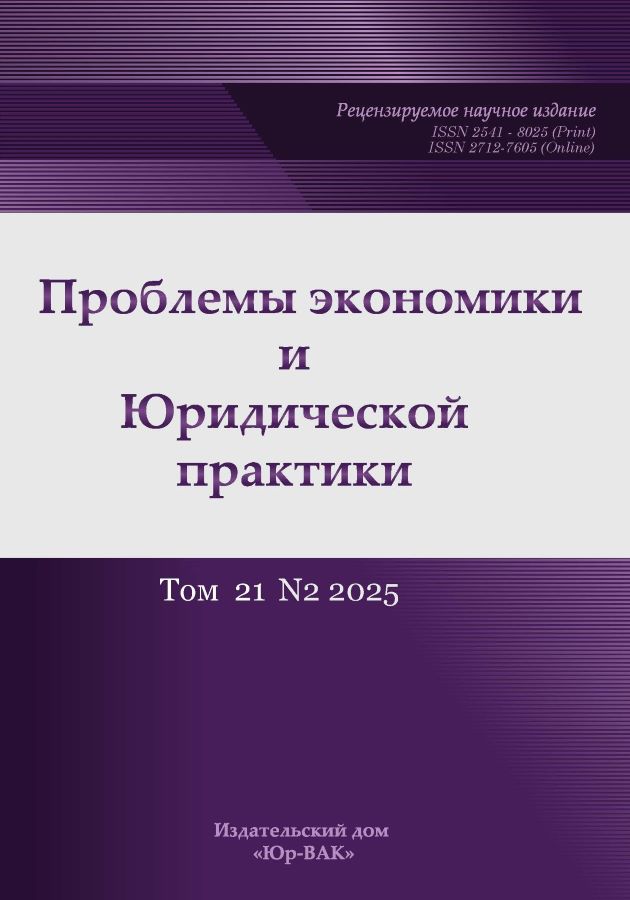Protecting Anti-Corruption Whistleblowers: Historical and Comparative Legal Aspects
- Autores: Klebanov L.R.1, Kutovaya M.I.1
-
Afiliações:
- Patrice Lumumba Peoples’ Friendship University of Russia
- Edição: Volume 21, Nº 2 (2025)
- Páginas: 134-139
- Seção: Criminal Law
- URL: https://journals.eco-vector.com/2541-8025/article/view/680558
- DOI: https://doi.org/10.33693/2541-8025-2025-21-2-134-139
- EDN: https://elibrary.ru/KOPPAM
- ID: 680558
Citar
Texto integral
Resumo
The article explores the historical-legal and comparative legal problems of assessing the actions of persons who voluntarily report corruption (from Roman traditions and the Middle Ages to modern legislation in various countries). Using the examples of «actio popularis» and «qui tam», the analysis demonstrates how the idea of encouraging citizens to report offenses — while simultaneously shielding them from false accusations and unjust pressure — developed historically. The core question is whether current legal frameworks and public institutions adequately protect those who decide to expose corruption. Detailed attention is given to issues such as informants’ anonymity and potential rewards, alongside the dangers of abuse in the absence of proper oversight. The study also highlights international experience (e.g., in the United Kingdom, the United States, and several Asian countries) and examines the work of specialized agencies such as the Serious Fraud Office (SFO), which handles large-scale financial crime investigations. Such a system enhances trust in governmental institutions, helps curb corruption, and lays the groundwork for a more stable and equitable society.
Texto integral
Sobre autores
Lev Klebanov
Patrice Lumumba Peoples’ Friendship University of Russia
Autor responsável pela correspondência
Email: klebanov_lr@pfur.ru
ORCID ID: 0000-0002-1452-9568
Código SPIN: 8500-6094
Scopus Author ID: 57213016905
Dr. Sci. (Law), Professor of the Department of Criminal Law, Criminal Procedure and Criminalistics of the Law Institute
Rússia, MoscowMaria Kutovaya
Patrice Lumumba Peoples’ Friendship University of Russia
Email: 0505557@mail.ru
Código SPIN: 2628-3448
Postgraduate Student of the Department of Criminal Law, Criminal Procedure and Criminalistics of the Law Institute
Rússia, MoscowBibliografia
- Ganshina V. L., Shanskij N. M. Etymological dictionary of the Russian language.M.: Prosveshhenie, 1985. PP. 115–144.
- Grincer P. A. Public and private in Roman law. Herald of Ancient History. 1990. N 1. PP. 45-56.
- Kistjakovskij A. F. Experiments in the history of criminal procedure. SPb.:Typography of Y. N. Ehrlich, 1876. PP. 128–137.
- Trevor-Roper H. R. Europe at the time of the witch hunts.M.: Centrpoligraf. 2002. PP. 247–260.
- Covington R. A. (2001) The False Claims Act and Its Impact on Federal Contracting // Harvard Law Review. Vol. 114, № 7. РР. 2157–2175.
- James B. Helmer Jr., (2013) False Claims Act: Incentivizing Integrity for 150 Years for Rogues, Privateers, Parasites and Patriots, 81 U. Cin. L. Rev. University of Cincinnati Law Review, Vol. 81, Iss. 4 Art. 3
- Joseph JN, et al. (2009) Enforcement Related to Off-Label Marketing and Use of Drugs and Devices: Where Have We Been and Where Are We Going?Archived 2016-03-04 at the Wayback MachineJournal of Health & Life Sciences Law. Vol.2 Issue 2. PP. 73–108. January.
- Lewis D. (2001) Whistleblowing at Work: Enhancing the Protection of Employees». Cheltenham: Edward Elgar Publishing. РР. 432–456.
Arquivos suplementares









